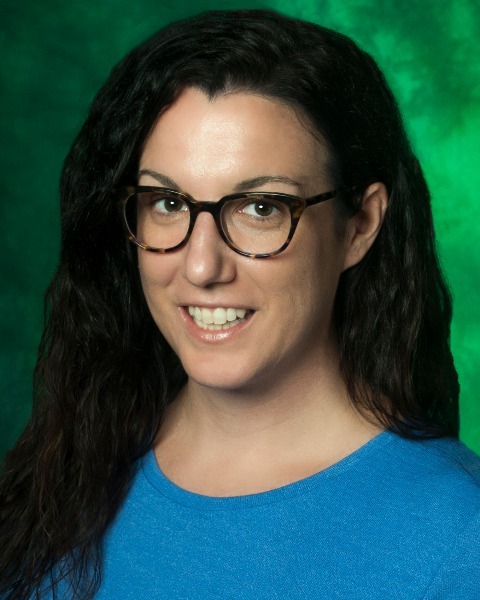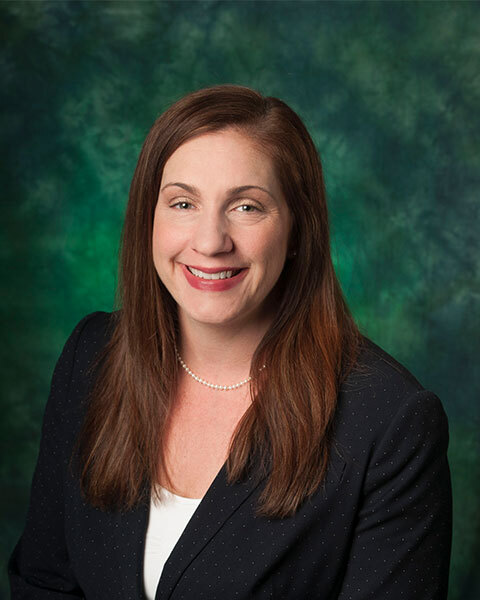
eAudiology
Increasing Access to Cochlear Implants for Older Adults
-
Register
- Non-member - $60
- Member - $35
- Student - $10
AAA 2021 Virtual: Increasing Access to Cochlear Implants for Older Adults
Presented at AAA 2021 Virtual
Presenter(s): Sharon Miller, PhD and Erin C. Schafer, PhD
Duration: 30 minutes
CEUs: 0.05 AAA
Instructional Level: Intermediate
Program Focus: Knowledge
Learning Outcomes: Upon completion, each participant in the eAudiology Web Seminar will be able to:
- Identify barriers to cochlear implantation for older adults.
- List evidence indicating older adults obtain significant benefit from cochlear implants.
- Describe outcome disparities for cochlear implant recipients with public insurance.
Description:
Abstract:
Increasing access to cochlear implants for qualifying older adult patients is imperative because untreated hearing loss is associated with significant health problems, such as social isolation, cognitive decline, and decreased quality of life. Recent data from our lab suggest having public insurance leads to poorer post-operative speech perception results and longer wait times to implantation after an initial candidacy evaluation. These results have important clinical implications regarding the expansion of cochlear implant candidacy criteria to reduce hearing healthcare disparities.
Summary:
Cochlear implants are safe and efficacious devices for older adults. In fact, a recent meta-analysis from lab suggest adults over the age of 60 experience similar pre-to-post-implant speech perception improvements in quiet relative to younger adults. While our data indicate outcomes in noise do differ across older and younger adults, older adults still achieve significant benefit from cochlear implants. However, despite this evidence, best estimates suggest only 1-8% of adults who meet qualifying candidacy criteria and could derive benefit actually get implanted (Gifford et al. 2010; Holder et al. 2018; Sorkin and Buchman 2016; Sorkin 2013). Increasing access to cochlear implants for qualifying older adult patients is imperative because untreated hearing loss is associated with significant health problems, such as social isolation, cognitive decline, limited participation, and generally decreased quality of life, resulting in long-term increased health-related costs (Dawes et al. 2015). In this learning module, we will discuss barriers to implantation in older adults. We will also discuss results from a recent study in our lab outlining how insurance payer status acts as a significant barrier to access to implants and affects outcomes in older adult recipients.
To qualify for a traditional implant, adults covered by Centers for Medicare and Medicaid Services (CMS) must score 40% or less on an open-set sentence test in the best aided condition and have bilateral moderate-to-profound sensorineural hearing loss (SNHL) (Centers for Medicare and Medicaid Services, 2005). Medicaid coverage for adult implants varies by state, and in some cases, the devices are not covered. In contrast, private insurance companies typically adhere to the labeled Food and Drug Administration (FDA) qualifying criteria for the specific manufacturers. Because Medicare and Medicaid qualifying criteria are stricter than the labeled manufacturer criteria, insurance payer status could affect expedient access to cochlear implants in patients who could derive benefit from an implant.
This learning module will discuss recent data from our lab examining whether insurance payer status affects 1) access to cochlear implant services and 2) longitudinal speech perception outcomes in adult cochlear implant recipients. Data from 68 patients were included in the analysis, and results from linear mixed-effects regression models indicate insurance payer status was a significant predictor of behavioral speech perception scores in quiet and in background noise, with patients with public insurance experiencing poorer outcomes. In addition, extended wait time to receive a cochlear implant was predicted to significantly decrease speech perception outcomes for patients with public insurance.
Our data indicate patients covered by public health insurance wait longer to receive cochlear implants and experience poorer post-operative speech perception outcomes. These results have important clinical implications regarding the cochlear implant candidacy criteria and intervention protocols which will be discussed in the learning module.

Assistant Professor, University of North Texas
Dr. Miller is an assistant professor in the Department of Audiology and Speech-Language Pathology at the University of North Texas. She earned her Ph.D. and M.A. degrees in Audiology from The University of Minnesota and has a B.S. in Communication Disorders from Northwestern University. Dr. Miller’s research focuses on brain plasticity related to language learning in hearing aid and cochlear implant patients using high density electroencephalography (EEG) techniques. The long-term goal of her research is to identify reliable biomarkers of speech sound representations in the auditory cortex and to determine whether neural circuits can be modified with formal training in order to improve speech and language outcomes in persons with hearing loss. Dr. Miller teaches graduate courses in Hearing Aid Amplification and undergraduate courses in Hearing and Speech Science.
Disclosure: Financial Disclosures: I do not have any relevant financial relationships with anything to disclose.
Non-Financial Disclosures: I do not have any relevant non-financial relationships with anything to disclose.

Professor, University of North Texas
Dr. Schafer joined the Audiology & Speech-Language Pathology faculty at University of North Texas in 2005 and is currently a Professor and the Director of Graduate Studies in Audiology. She received her Ph.D. in Communication Sciences and Disorders from the University of Texas at Dallas in 2005. Her research programs on the assessment and (re)habilitation of adults and children with hearing loss and auditory disorders have produced over 60 peer-reviewed publications, four textbooks, national and international podium presentations at conferences, and external grants and gifts. Her current research projects focus on the use of remote-microphone technology and auditory training to improve auditory function in individuals with hearing aids or cochlear as well as those who are diagnosed with autism spectrum disorder (ASD).
Disclosure: Financial Disclosures: I do not have any relevant financial relationships with anything to disclose.
Non-Financial Disclosures: I am the editor of Audiology Today.
